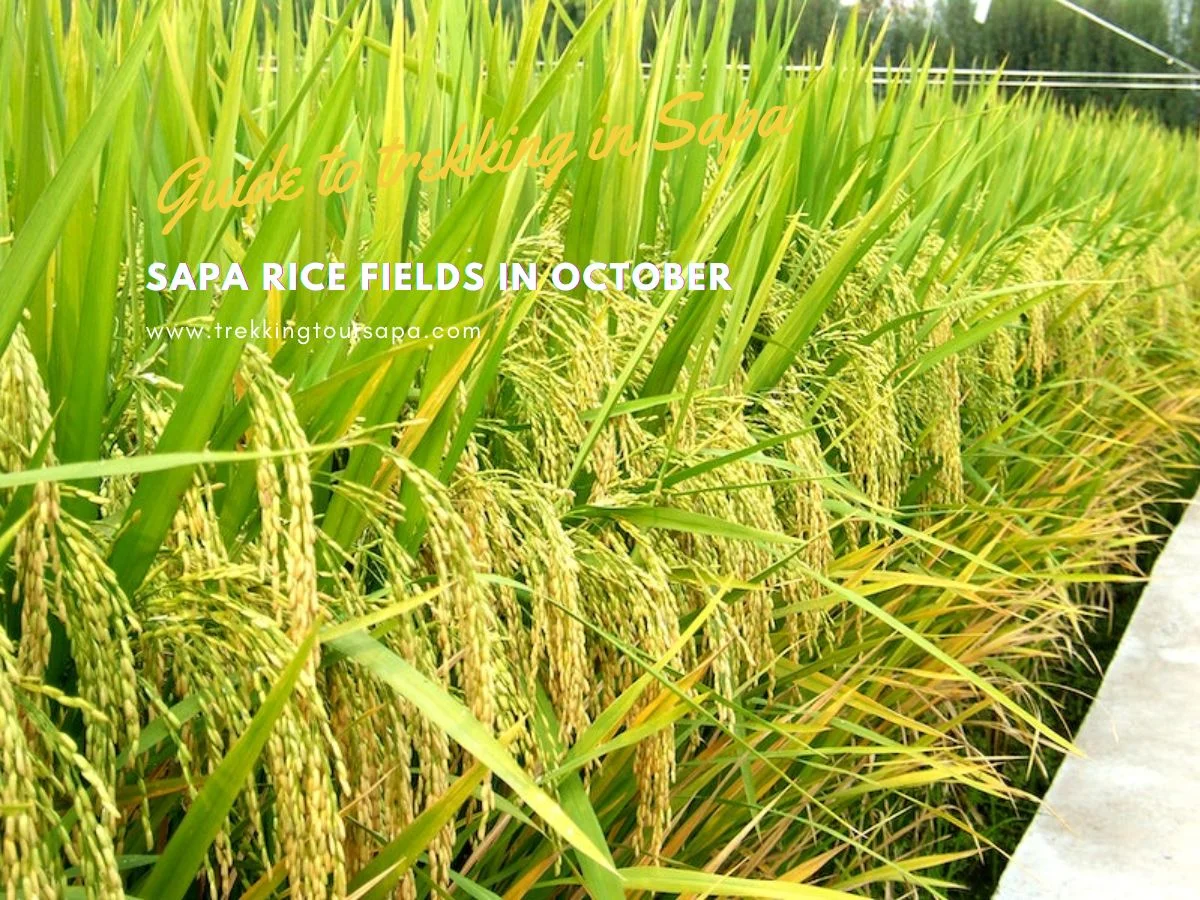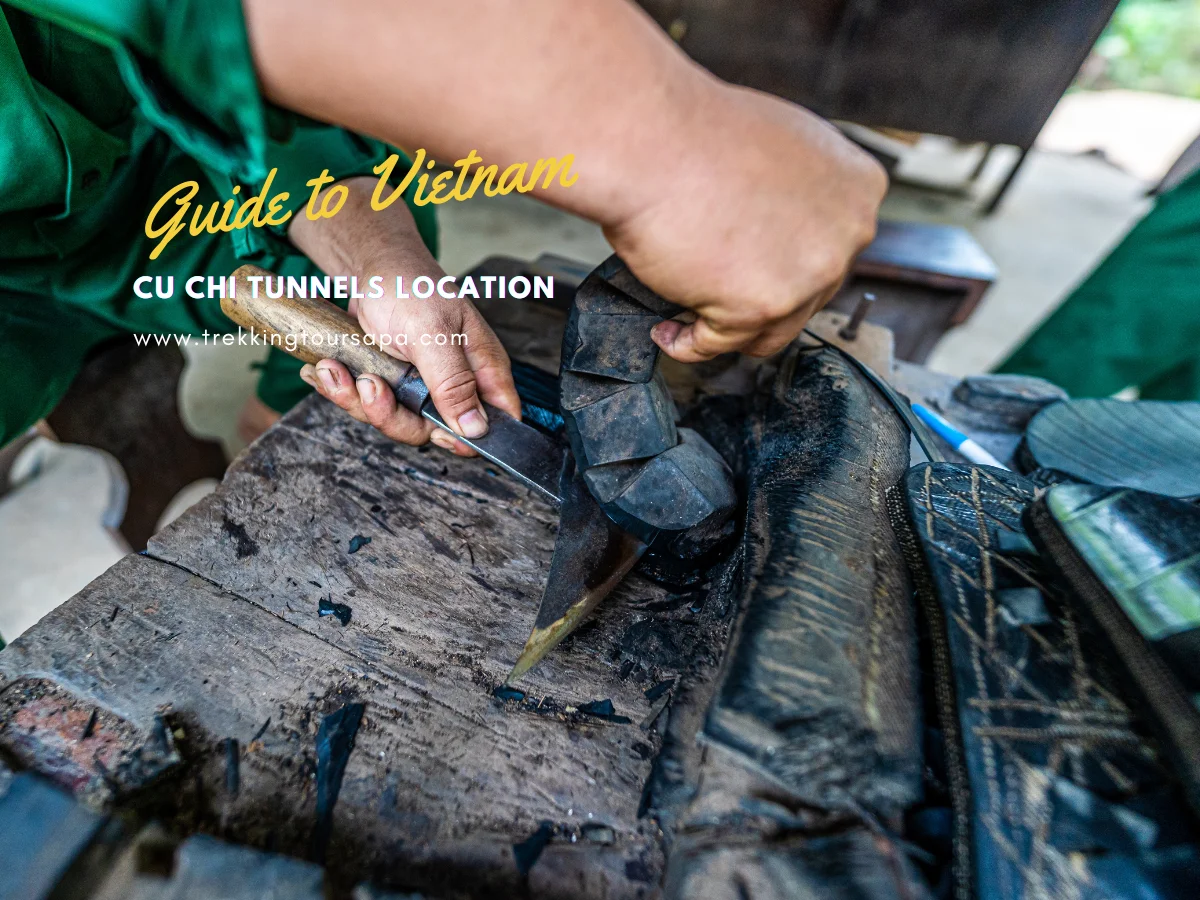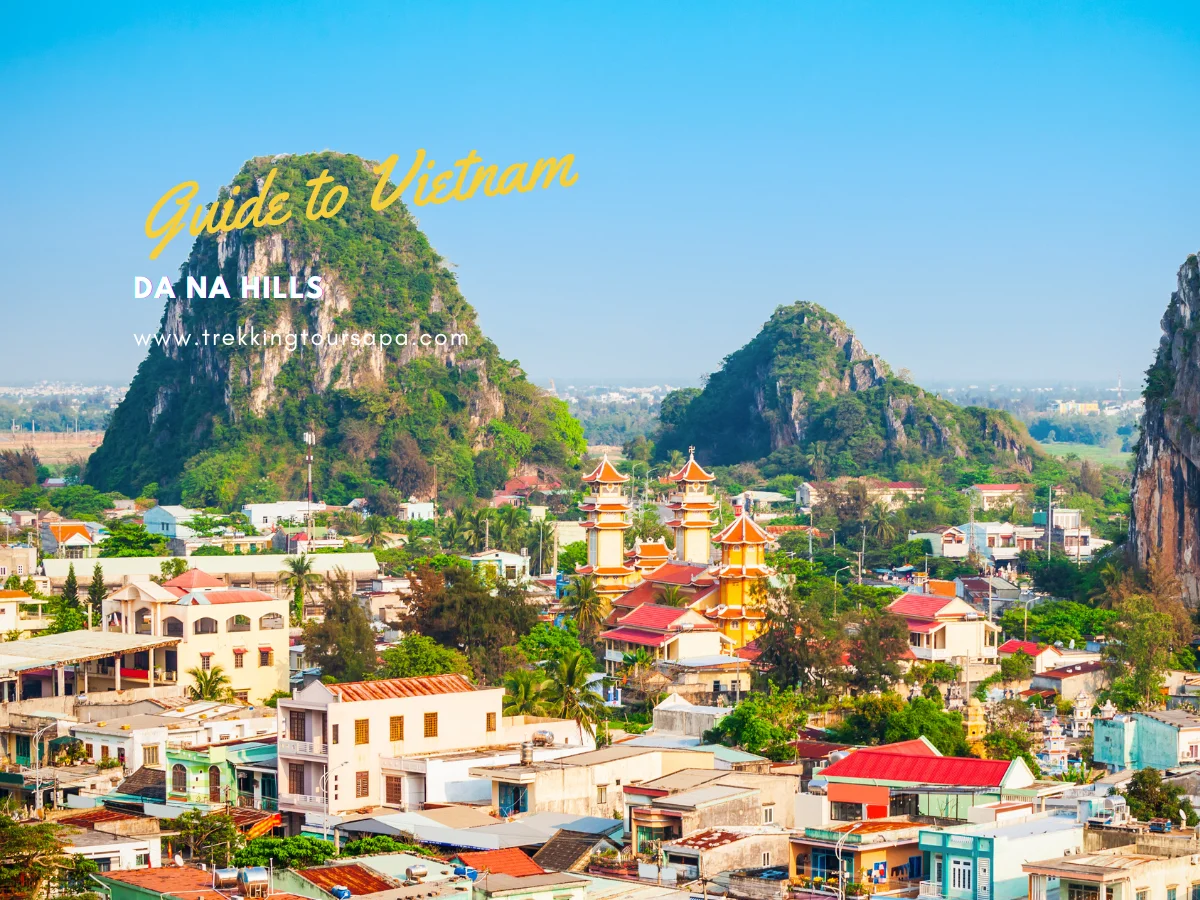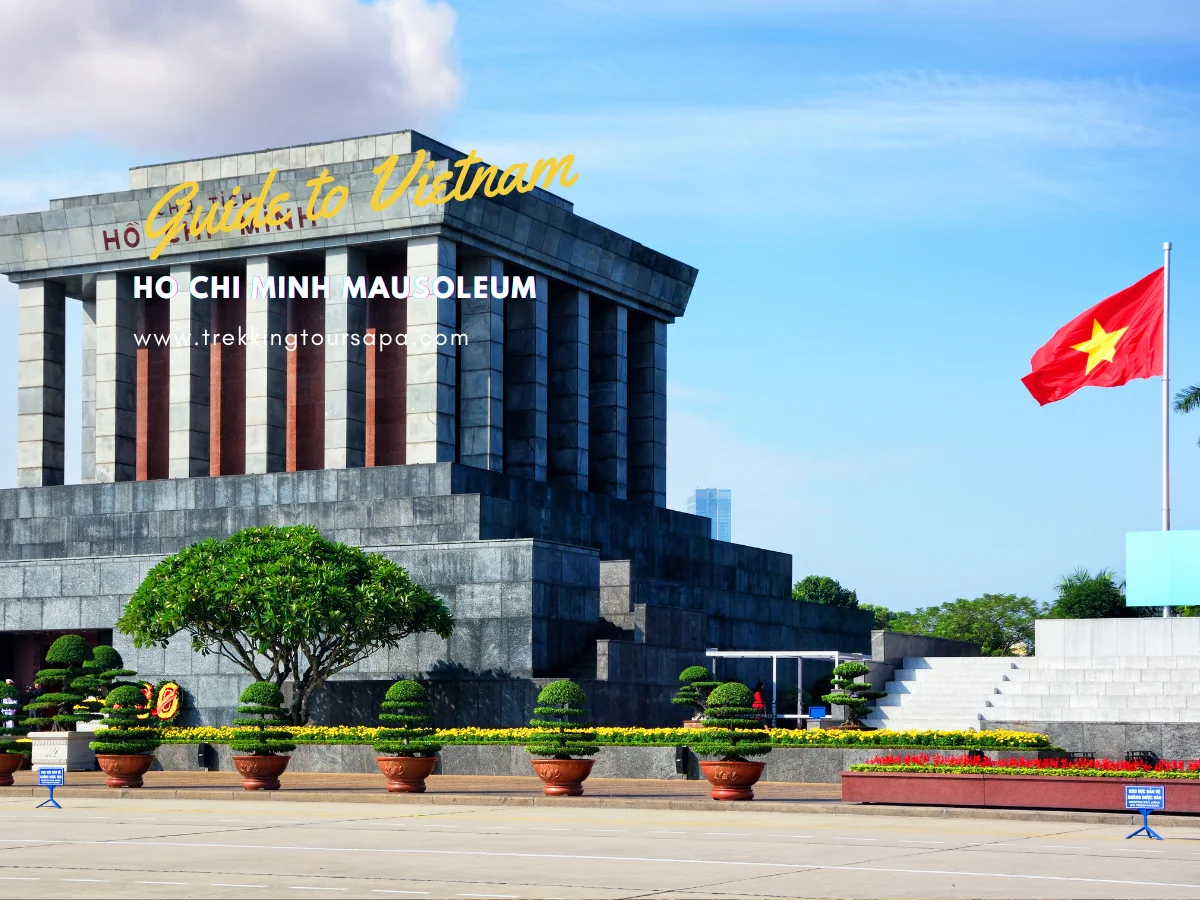You’re itching for an escape, a break from the monotony of daily life. You want to lose yourself in a place that’s far away from the hustle and bustle of city living. Have you ever considered visiting Sapa rice fields? The stunning beauty of these terraced rice paddies will leave you breathless and rejuvenated.

October is the perfect time to visit Sapa rice fields. The rainy season has ended, leaving behind lush greenery that stretches as far as your eyes can see. The cool autumn breeze adds to the serene ambiance, making it an ideal time for hiking or cycling through the fields. As you walk along the narrow paths between farms, you’ll witness locals working on their land with traditional tools and techniques passed down through generations. It’s like stepping back in time to a simpler way of life where nature takes center stage.
Table of Contents
ToggleOverview of Sapa and Its Rice Fields
Fall in this mountainous region is a breathtaking experience, with vibrant foliage and terraced landscapes that will leave you in awe. Sapa, located in the northwest of Vietnam, is known for its picturesque rice fields that are a result of local traditions and the unique Sapa culture. The rice fields are carved into the mountainsides creating beautiful patterns of lush green crops that stretch as far as the eye can see.
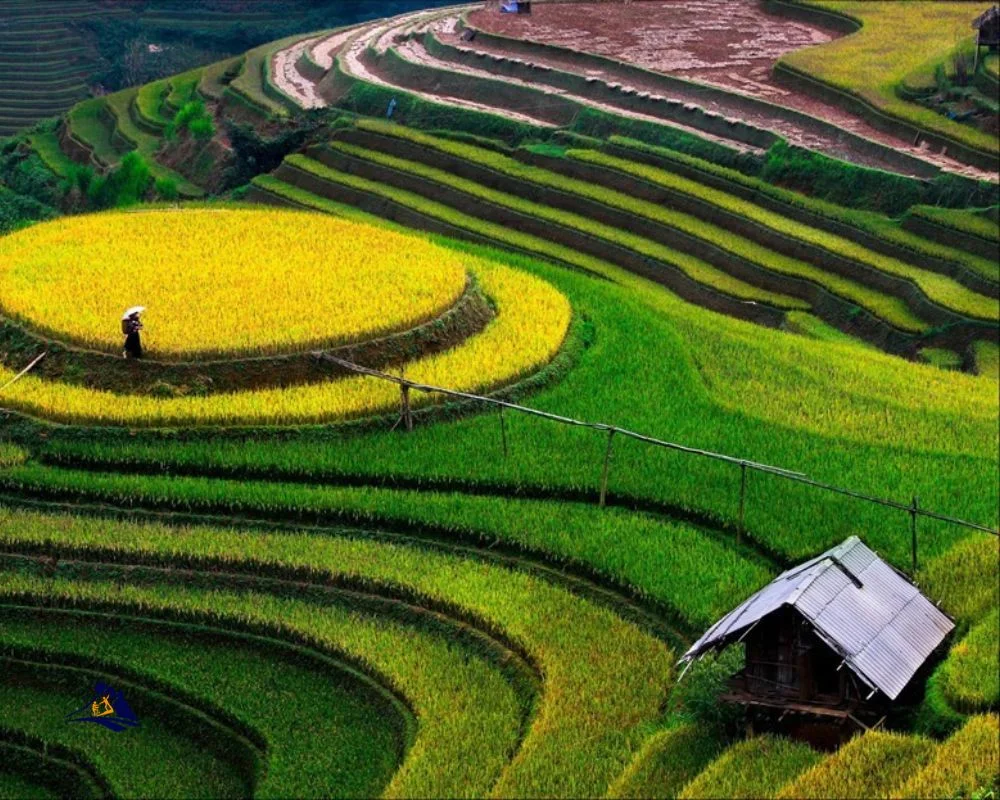
The native Hmong people have been cultivating these rice paddies for centuries and they offer an authentic glimpse into their way of life. Apart from being an essential source of food, rice cultivation plays an integral role in their festivals and celebrations. From planting to harvesting, every step is infused with rituals passed down through generations – it’s truly fascinating! So if you’re looking to immerse yourself in nature while learning about local traditions, visiting Sapa‘s rice fields should be on your bucket list.
As captivating as they are all year round, there’s a specific time when the rice paddies become even more mesmerizing – October! This is when the harvest season begins and you’ll witness golden hues spreading across vast expanses of land like waves. The brilliant contrast against the blue skies provides an ethereal view that leaves visitors spellbound. So pack your bags and head towards this enchanting destination to witness one of nature’s most spectacular displays!
The Best Time to Visit Sapa Rice Fields
If you’re planning a trip to the mountains, you’ll want to know when the best time is to witness nature’s most breathtaking display at Sapa Rice Fields. The ideal time to visit Sapa Rice Fields is in October when the rice paddies turn golden yellow and create a picturesque view for visitors. This month marks the end of the rice harvesting season, making it an excellent time to catch a glimpse of farmers working hard in their fields.
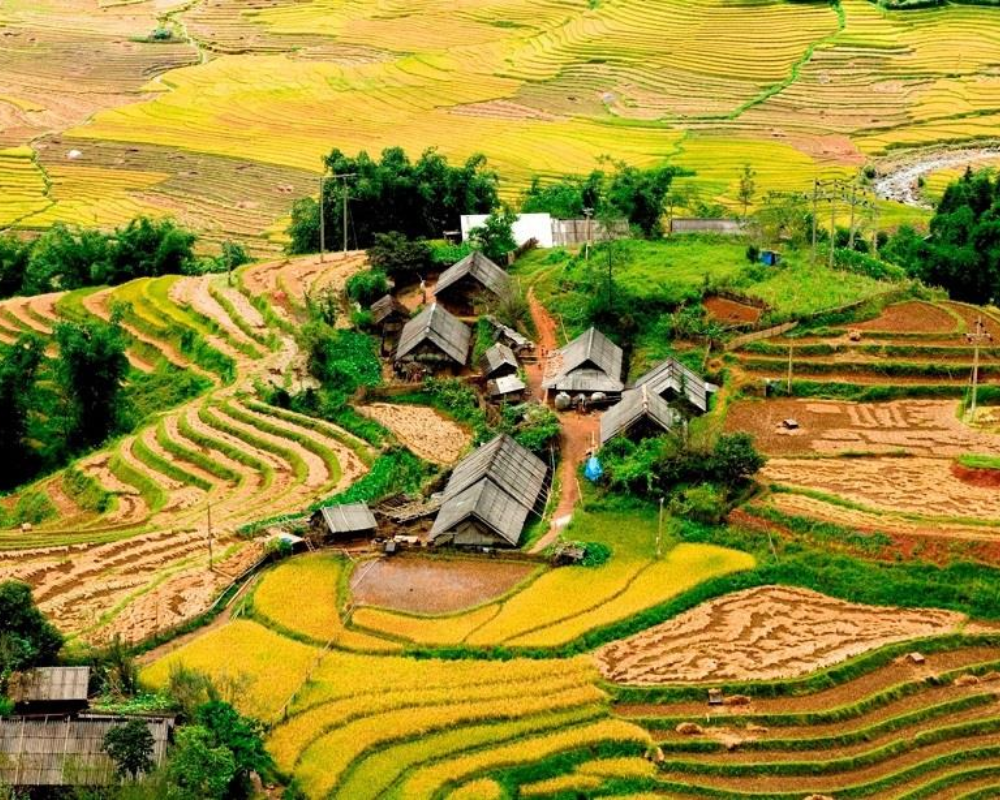
To capture this stunning panorama, be sure to equip yourself with the best camera possible. A DSLR or mirrorless camera will give you high-quality images that truly reflect the beauty of these fields. Additionally, dress appropriately for your visit by wearing warm clothing as temperatures can drop drastically during this season. Bring along some sturdy boots as well if you plan on walking through the fields.
Now that you know when to go and what gear to bring, let’s talk about how to get to Sapa and start your adventure in this beautiful part of Vietnam!
How to Get to Sapa
To get to Sapa, you have a few transportation options available. The most popular is taking the overnight train from Hanoi which takes approximately 8 hours. Another option is taking a bus or private car but this can take upwards of 6-7 hours depending on traffic and road conditions. Regardless of your choice, prices will vary based on your mode of transportation and travel time. Plan accordingly to ensure a smooth journey to Sapa!
Transportation Options
You’ll have plenty of ways to get around and explore the stunning countryside during this time of year. If you’re looking for a more budget-friendly option, public transportation is widely available in Sapa. Buses are the most common mode of transportation and can take you to various destinations within the province. You can easily catch one from Lao Cai or Hanoi and ride it all the way to Sapa town center.
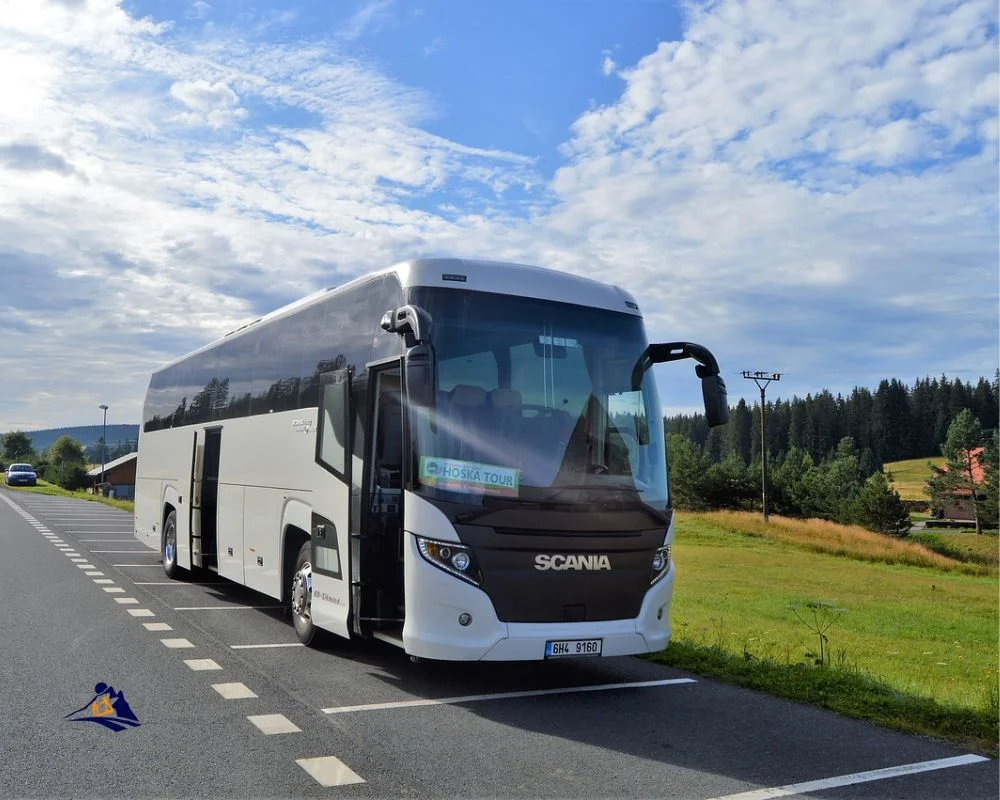
If you prefer a more comfortable ride, private tours are also available. They offer a personalized experience, allowing you to stop at any location you want for as long as you need. Moreover, private tours provide knowledgeable guides who can share interesting facts about the area’s history and culture while taking care of all your travel needs. Whatever transportation option you choose, traveling around Sapa will be an unforgettable experience that will leave lasting memories in your mind.
When it comes to travel time and costs, there are many factors to consider such as distance traveled, mode of transportation chosen and time of day. Let’s dive into these details so that you can make informed decisions on how best to plan your trip!
Travel Time and Costs
The section on travel time and costs provides valuable information for anyone planning a trip to explore the stunning countryside of Northern Vietnam. If you’re on a tight budget, taking public transportation is a more affordable option than hiring a private car or joining a tour group. However, keep in mind that it may take longer to reach your destination and there may be multiple stops along the way.
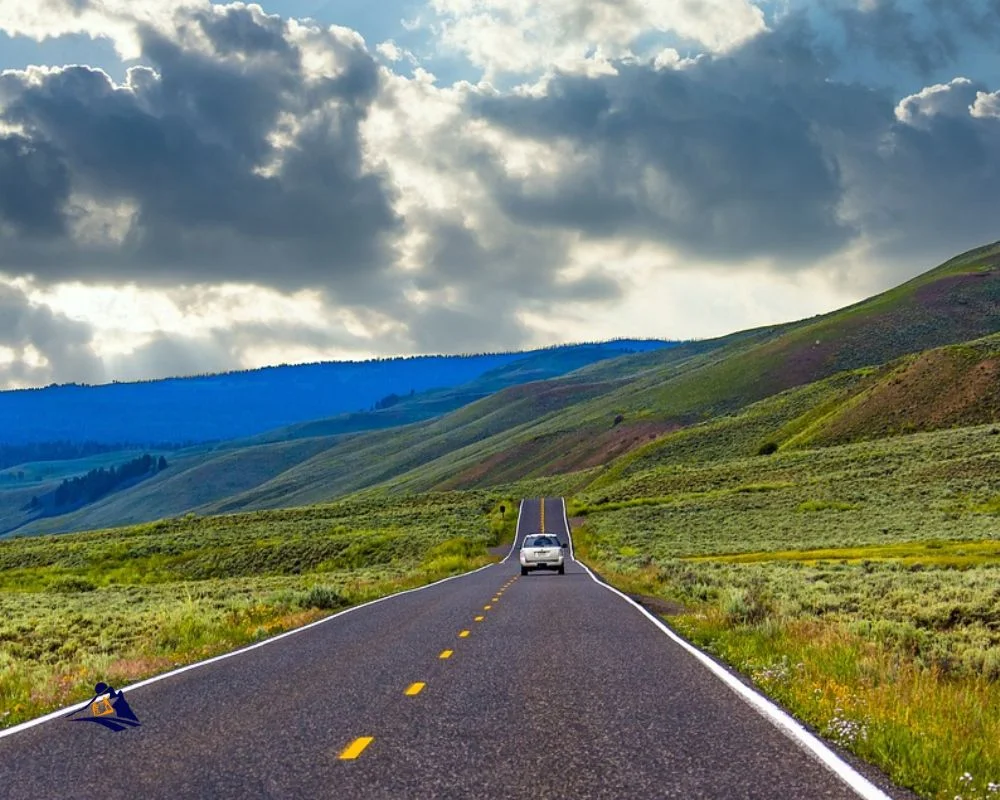
Budget planning is crucial when visiting Sapa, as accommodation options range from luxurious hotels to simple homestays with local families. It’s important to research and compare prices beforehand to find the best deal for your budget. With this in mind, you can maximize your travel experience without breaking the bank. Now that you have an idea of how much it will cost you to travel around Sapa, let’s move on to exploring the top things to do in this beautiful region of Vietnam.
Top Things to Do in Sapa
Experience the best of Sapa by exploring its diverse range of activities and attractions in this list of top things to do. Whether you are a nature lover, culture enthusiast, or adventure seeker, there is something for everyone in Sapa. Here are four must-do activities during your visit:
- Trekking and hiking: Sapa is home to some of Vietnam’s most beautiful hiking trails, offering stunning views of rice terraces, mountains, and valleys. Take a guided trek through the hills to see the colorful hill tribes and their traditional way of life.
- Cultural experiences: Immerse yourself in local culture by visiting one of Sapa‘s many markets or attending a traditional dance performance. Learn about the unique customs and traditions of the ethnic minorities that call this place home.
- Waterfall chasing: Escape the crowds and venture out on a waterfall chase! Discover hidden gems like Silver Waterfall or Love Waterfall where you can take a refreshing dip in cool mountain water.
- Cable car ride: For panoramic views over the stunning landscape surrounding Sapa, take a ride on the world’s longest cable car system from Fansipan Mountain down to Muong Hoa Valley.
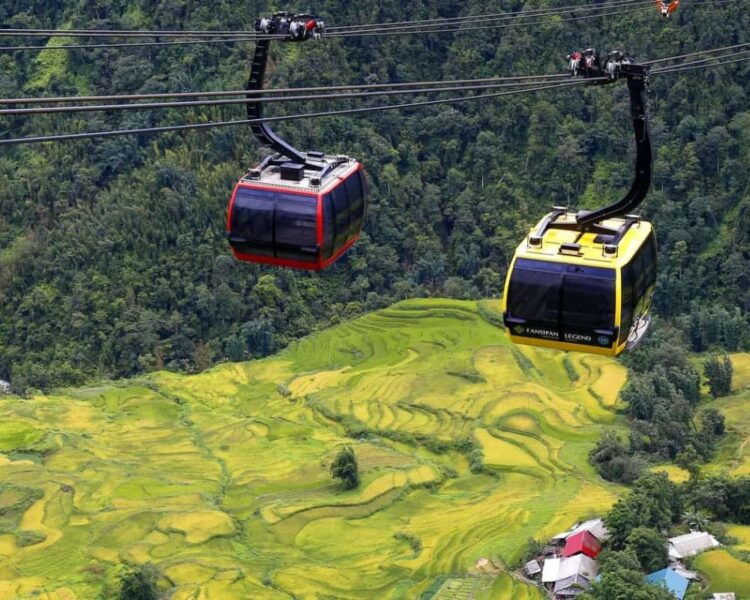
After an exhilarating day exploring all that Sapa has to offer, it’s time to rest up before another adventure-packed day tomorrow! So let’s move onto our next topic – Where To Stay In Sapa?
Where to Stay in Sapa
If you’re looking for the perfect accommodation options to make your Sapa adventure even more memorable, check out our recommendations. There are a variety of hotels and hostels in the town center that offer comfortable rooms and convenient access to local attractions. However, if you want a more immersive experience, we suggest trying one of the many local homestays available in the area.
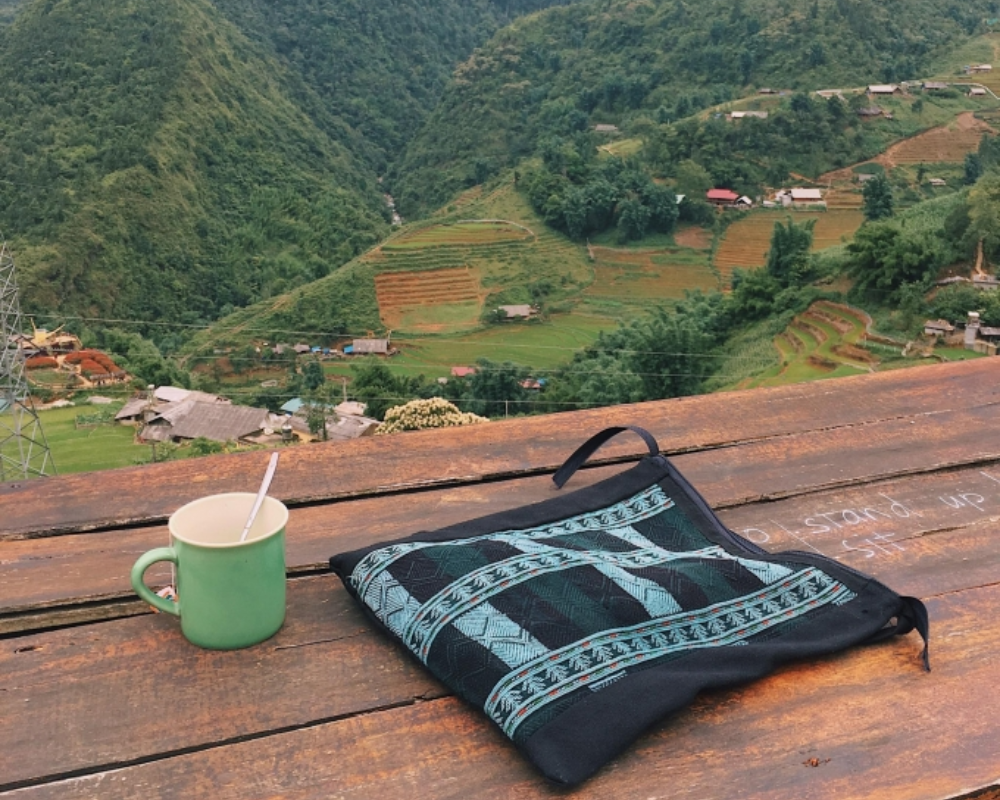
Staying with a local family allows you to learn about their way of life and experience traditional Vietnamese hospitality firsthand. Most homestays offer private rooms or shared dormitories at affordable prices, and some even include meals made from locally sourced ingredients. Immerse yourself in Sapa’s culture by staying at a homestay during your visit.
As you plan your stay in Sapa, keep in mind that food is an essential part of any cultural experience. So next up, let’s talk about what to eat while exploring this beautiful region without missing out on anything delicious!
What to Eat in Sapa
You’re in for a mouth-watering treat as we explore the diverse and scrumptious cuisine of Sapa, known for its traditional dishes and local cuisine that reflect the region’s cultural heritage. Start your culinary journey with ‘thang co’, a popular soup made from horse meat, organs, and bones that are simmered overnight with various herbs and spices. Though it may sound unusual to some, this dish is a staple among the local Hmong community and has an earthy flavor that will warm you up on chilly nights.
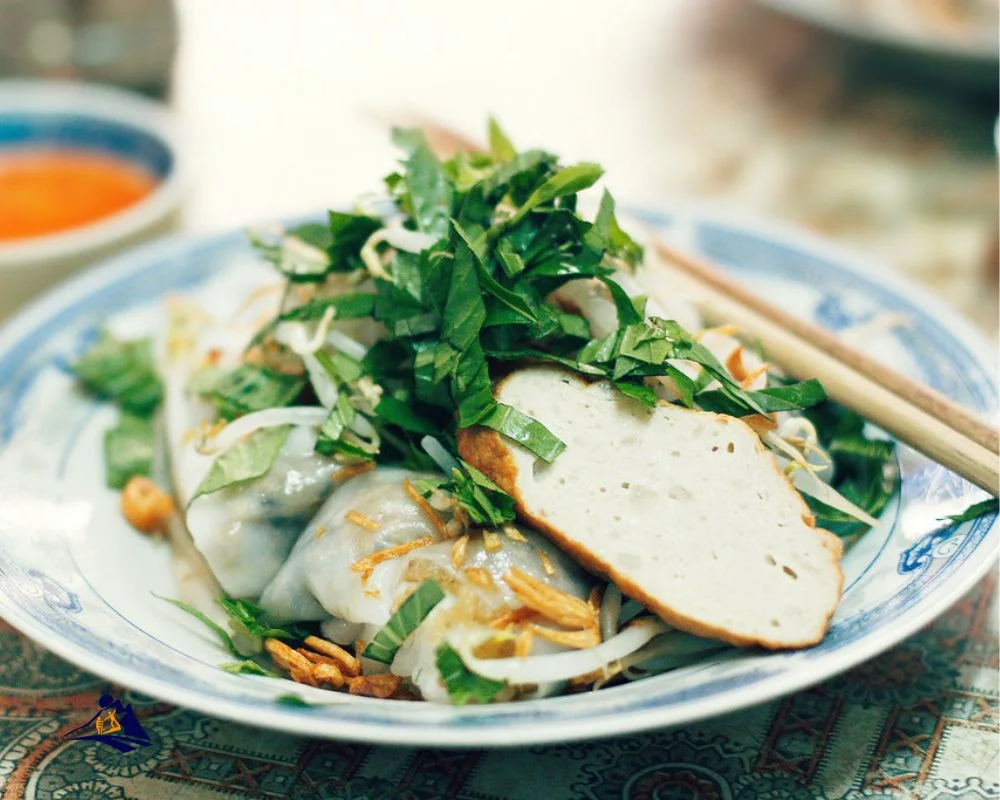
For those who prefer milder flavors, try ‘banh cuon’, a type of rice noodle roll filled with minced pork or shrimp, mushrooms, and herbs. This dish is light yet filling, making it perfect for breakfast or as a snack between meals. Pair it with ‘nuoc cham’ dipping sauce made from fish sauce, lime juice, sugar, chili peppers, garlic to add an extra kick of flavor. These dishes are just a small taste of what Sapa has to offer in terms of food culture – so don’t be afraid to explore and try new things!
Now that you have satisfied your taste buds let’s move on to tips for visiting Sapa rice fields without missing out on any must-see spots.
Tips for Visiting Sapa Rice Fields
Let’s discover some helpful tips for exploring the breathtaking landscape of Sapa and immerse yourself in the beauty of its lush greenery. When visiting the rice fields, don’t forget to bring your camera! The views are stunning and you’ll want to capture every moment. Here are some photography tips: try shooting during golden hour (the hour after sunrise or before sunset) for warm, soft lighting; use a polarizing filter to reduce glare and enhance colors; experiment with different angles and perspectives, such as getting low to the ground or climbing a nearby hill.

While taking photos is important, it’s also crucial to respect the local culture and immerse yourself in it. Take time to learn about the Hmong people who live in Sapa by visiting their villages, trying their food, and buying handmade crafts directly from them. This will not only enrich your experience but also support sustainable tourism practices that benefit both visitors and locals. Remember that as a tourist, you have a responsibility to leave minimal impact on the environment and contribute positively to the community. With these tips in mind, let’s move on to discussing the importance of sustainable tourism when visiting Sapa.
The Importance of Sustainable Tourism
It’s crucial to understand the impact of your travels and take responsibility for sustainable tourism practices when exploring new destinations like Sapa rice fields in October. Sustainable tourism promotes responsible travel that balances social, environmental, and economic factors. By adopting eco-friendly accommodations, you can reduce your carbon footprint and contribute to the preservation of local cultures and natural resources.

To help you make informed decisions when traveling sustainably, here are four tips to keep in mind:
- Choose tour operators that prioritize sustainability
- Reduce waste by bringing reusable water bottles and bags
- Respect local customs and traditions
- Opt for eco-friendly accommodations such as camping or homestays
By following these simple steps, you’ll be able to enjoy the beauty of Sapa rice fields without contributing to their degradation. Remember that responsible travel not only benefits the destination but also enriches your own travel experience by providing a deeper understanding of local cultures and environments.
Sapa Rice Fields In October Frequently Asked Questions
What is the history behind the Sapa rice fields?
Imagine a lush green landscape, stretching out before you like a sea of emerald. You can feel the cool breeze on your skin, and the sun warms your face. This is what it must have been like for farmers in Sapa rice fields hundreds of years ago. The history of Sapa rice fields dates back to the 13th century when Vietnamese people migrated to this area and used traditional farming techniques to cultivate crops. Over time, they developed terraced agriculture systems that allowed them to grow rice in the mountainous terrain. Today, these rice fields are not only a symbol of Vietnam’s rich cultural heritage but also an example of sustainable farming practices that have stood the test of time.
Are there any traditional festivals or ceremonies that take place in the Sapa rice fields in October?
If you’re looking for a truly unique and unforgettable experience, then attending one of the festivals or ceremonies that take place during the rice harvesting season is a must. These events are steeped in tradition and provide an opportunity to witness firsthand the hard work and dedication that goes into cultivating and harvesting rice. From colorful processions to music and dance performances, there’s something for everyone at these festivals. Not only will you gain a deeper appreciation for the culture and history of the region, but you’ll also have the chance to connect with locals who are proud to share their traditions with visitors like you. So if you’re ready for an adventure unlike any other, be sure to add a rice harvesting festival or ceremony to your itinerary when visiting this beautiful part of the world.
Can tourists participate in the rice harvesting process?
Imagine yourself knee-deep in mud, surrounded by the vibrant green of rice paddies. The sun is shining down on your face as you work alongside locals, carefully harvesting the precious grains. This is not just any tourist experience – this is an authentic immersion into local life and culture. If you have ever dreamed of being a part of the rice harvesting process, Sapa offers a unique opportunity to do so. With local involvement at its core, tourists can participate in this traditional practice and gain a deeper appreciation for the hard work that goes into producing one of Vietnam’s staple foods.
Are there any specific cultural customs or etiquette that visitors should be aware of when visiting the Sapa rice fields?
When visiting any foreign culture, it’s important to be aware of the local cultural customs and etiquette. In Vietnam, for example, it’s considered impolite to touch someone’s head or point with your finger. As a tourist, you should also be mindful of your behavior when visiting places like the Sapa rice fields. Avoid littering and damaging the crops, and always ask permission before taking photos of locals. It’s also respectful to dress modestly and remove your shoes when entering someone’s home. By being conscious of these cultural customs, you can show respect for the local traditions and create a positive experience for both yourself and those around you.
What are some lesser-known hiking trails or viewpoints that offer unique perspectives of the Sapa rice fields?
If you’re looking for hidden gems and unique perspectives of the Sapa rice fields, there are a few lesser-known hiking trails that offer breathtaking views. One such trail is the Ta Phin village trek, which takes you through lush green forests and terraced rice paddies. Another great option is the Cat Cat waterfall hike, where you can capture stunning photos of the cascading falls against a backdrop of vibrant greenery. If you want to take your photography to the next level, try visiting during sunrise or sunset when the light casts a warm glow over the fields. Keep in mind that some trails may require a local guide and proper trekking gear, so plan accordingly. With these tips in mind, get ready to explore and capture the beauty of this natural wonder!
Conclusion
Congratulations! You have now reached the end of this informative article on Sapa rice fields. Hopefully, you are now equipped with all the necessary knowledge and tips to make your visit unforgettable.
Sapa’s serene and stunning rice terraces are a sight to behold any time of year, but visiting in October offers a unique opportunity to witness the vibrant colors of the harvest season. With its cool climate, rich culture, and breathtaking landscapes, Sapa is truly a must-visit destination for any traveler seeking an authentic experience in Vietnam.
Remember to pack your camera, comfortable shoes, and an open mind as you journey through this enchanting region. Whether you choose to trek through rice fields or indulge in local cuisine, there’s something for everyone in Sapa. So why wait? Book your trip today and explore this captivating corner of Southeast Asia that is sure to leave a lasting impression on your heart and soul.
